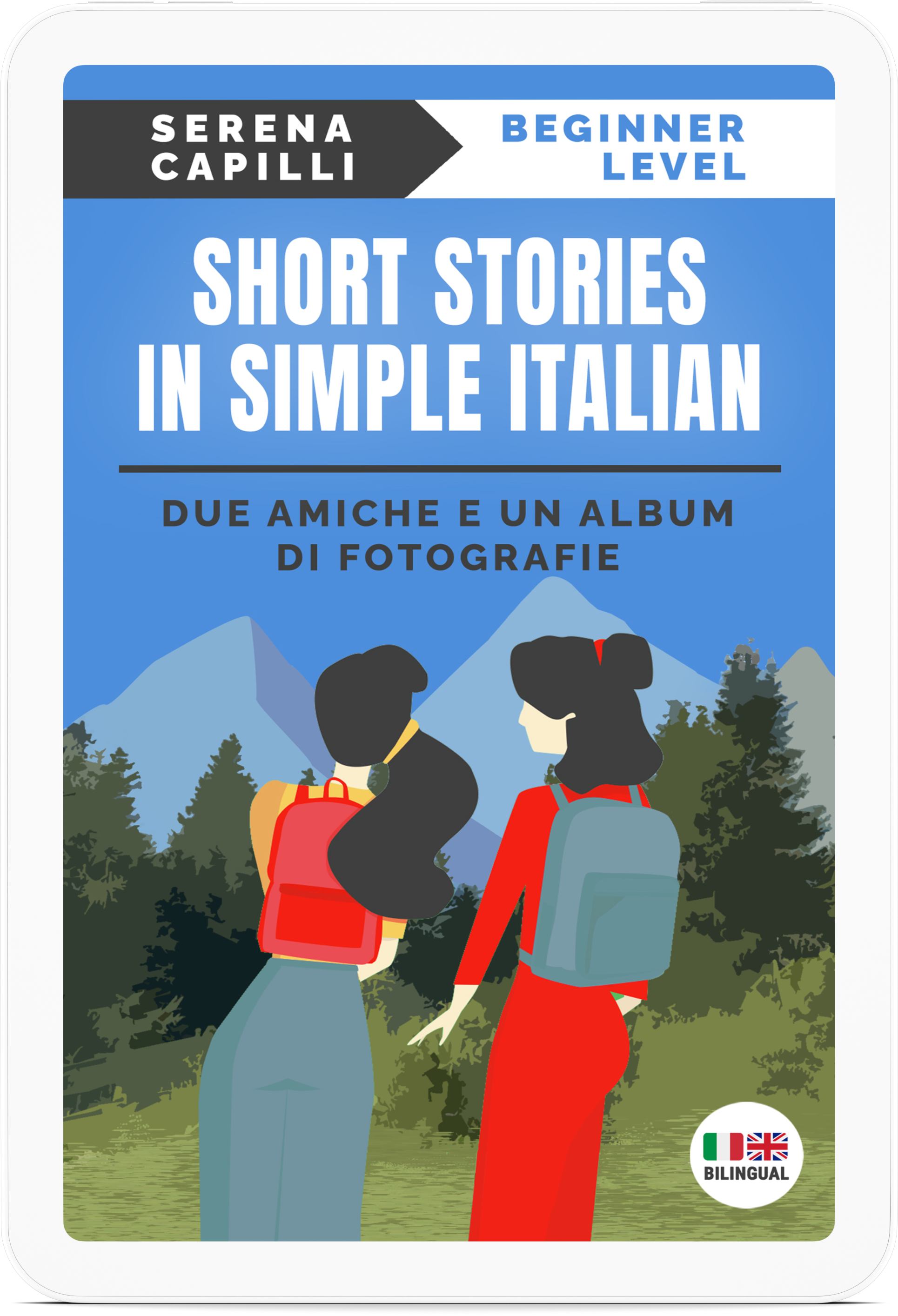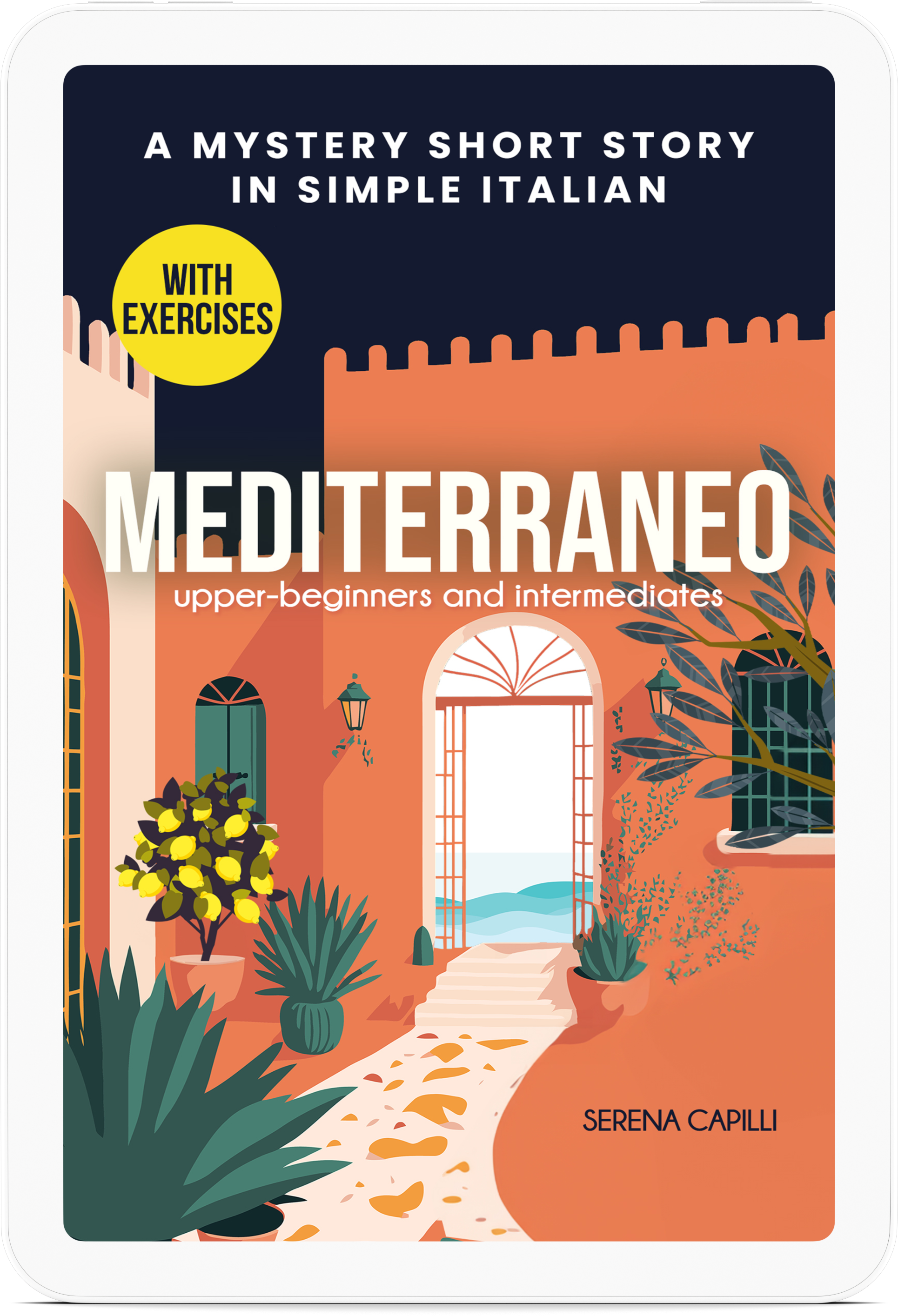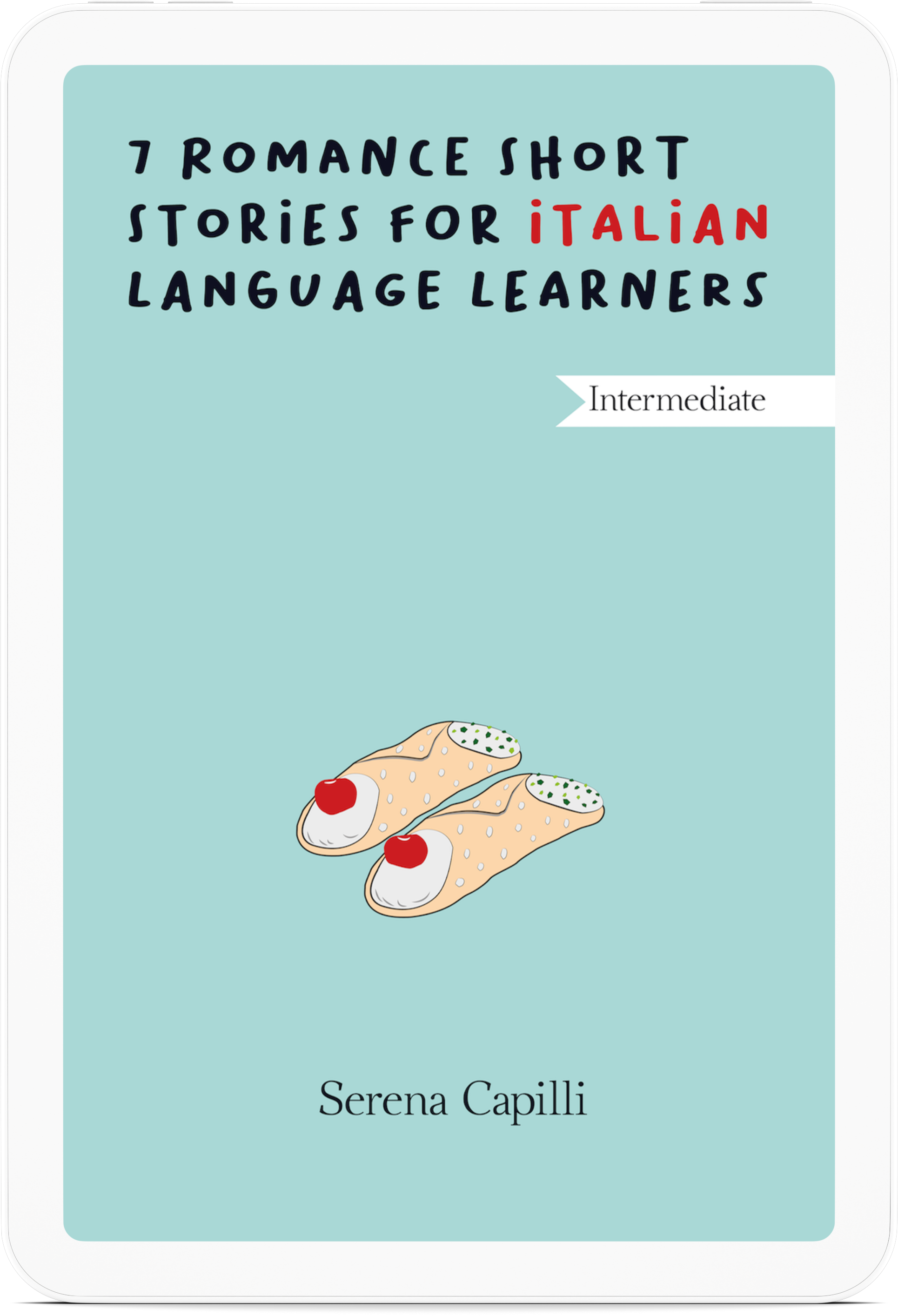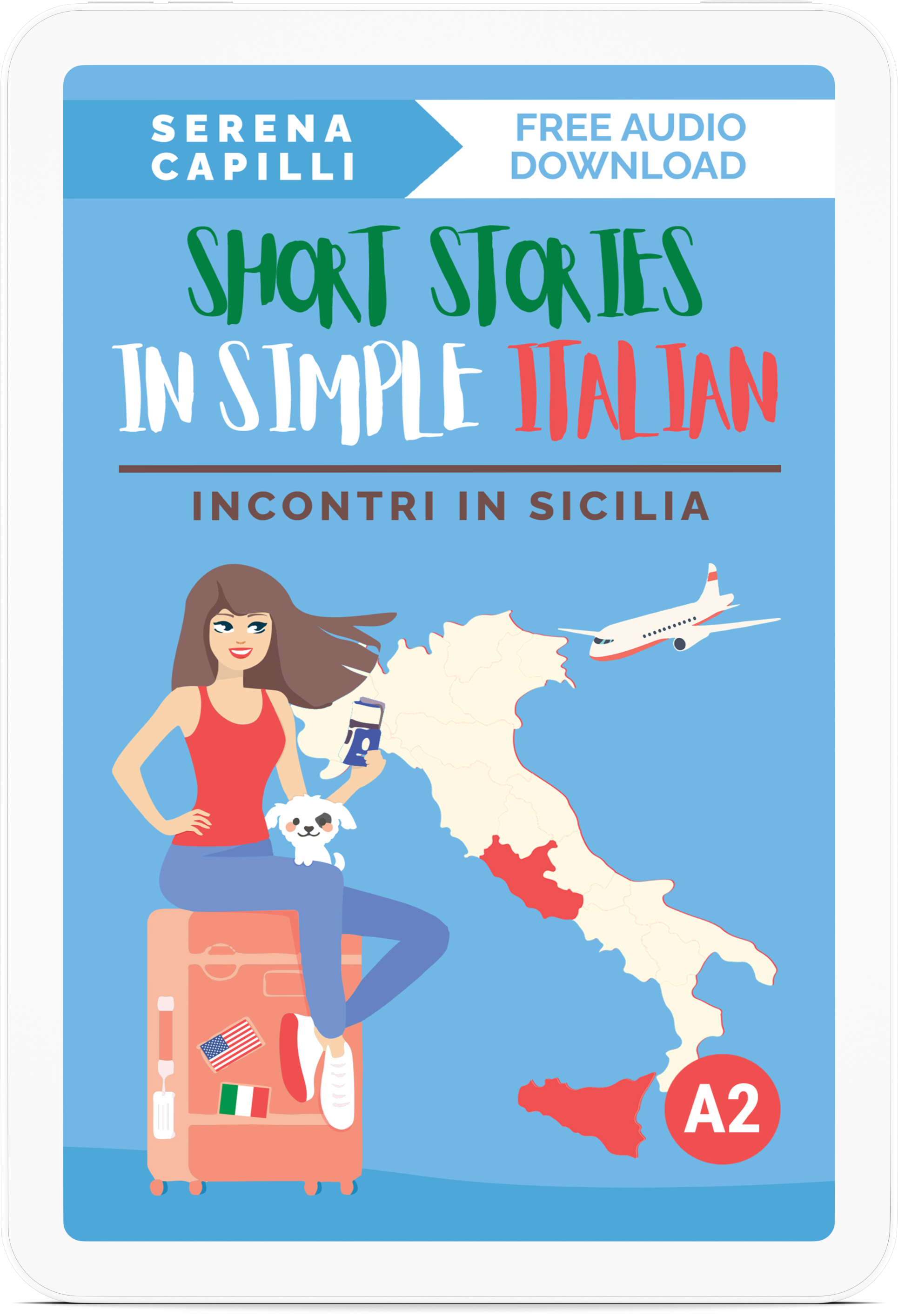Due Amiche e un Album di Fotografie
- Written Super Easy Italian
- Dual Language Book 🇮🇹 / 🇬🇧
- Set in scenic South Tyrol ⛰️
- Most common Italian words and phrases for beginners
- Effective recall exercises
Beginners (A1, A2)
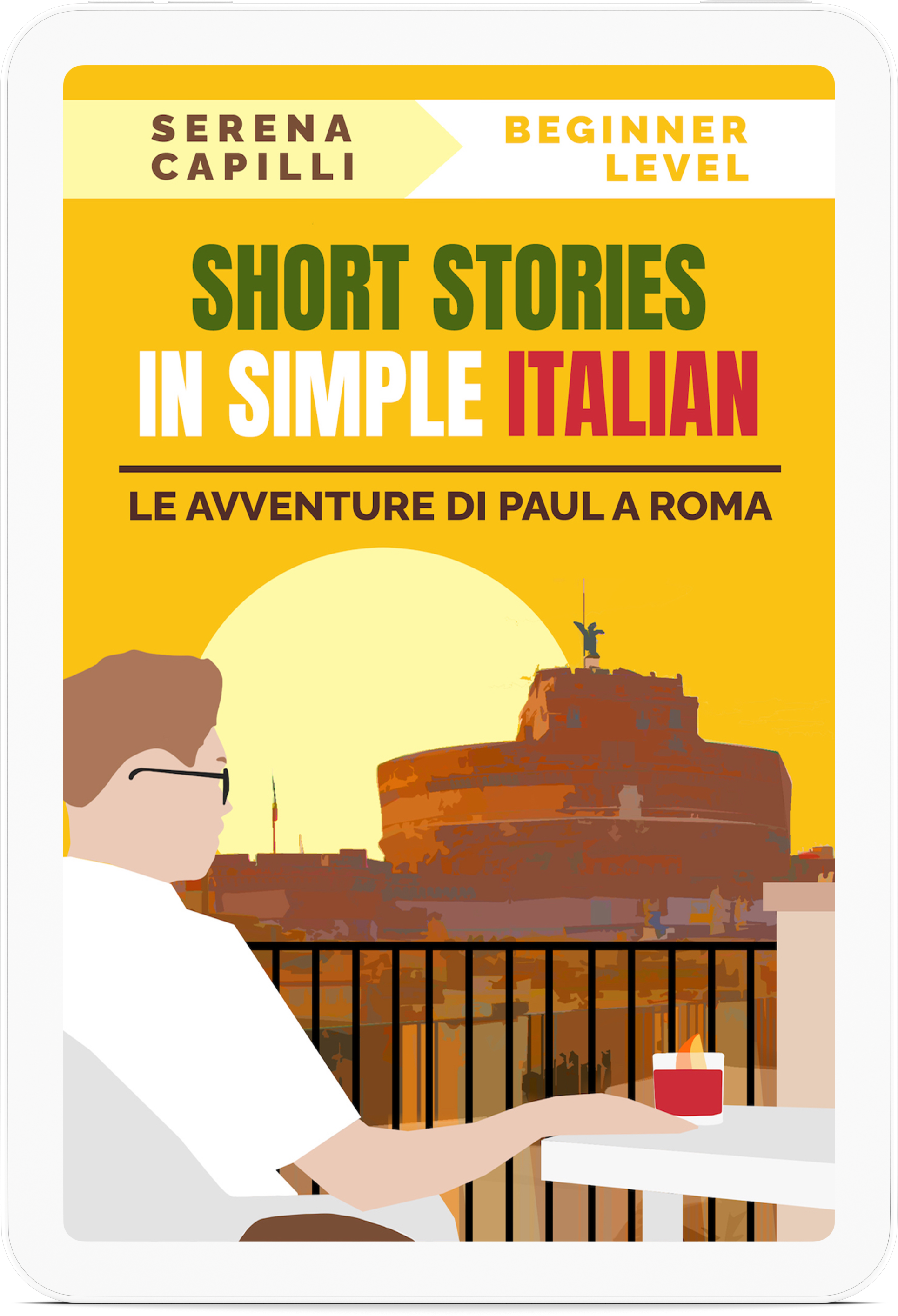
Le Avventure di Paul a Roma
- Optimized for beginners and lower-intermediate learners
- Set in Rome ⛰️
- Most common Italian words and phrases traveling
- Effective recall exercises
Beginners to Intermediate (A1+, A2, B1)
Mediterraneo – A Mystery
- Written in simple Italian
- Set in scenic Puglia 🍋
- Most common Italian words and phrases
- Effective recall exercises
upper-beginners, Intermediate (a2, B1)
How did I come with these stories?
The challenge
Having spent the last 10 years teaching Italian to native English speakers, I’ve come to realize that the most challenging part of learning Italian is putting all of the bits and pieces of grammar and vocabulary together to form flowing Italian sentences. In the early stages of my teaching career, I kept noticing a pattern: my beginner and intermediate students would tend to use recycled vocabulary and grammar, lingering on the same levels for months without significant progress.
The solution
What happened next?
What you can expect from my story learning method
A Rewarding Sense of Achievement
Our Italian short stories are easier to digest, but if they are filled with amusing anecdotes and fascinating facts about Italian culture, they are much more enjoyable, sucking you into that world.
A Time Effective Way of Learning Italian
You’ll be able to read a complete story in the native language in no time, while also expanding your vocabulary. We estimate it will take only 10 minute to round up every chapter. And another 5-10 to complete the annexed exercises.
Cultural Awarness
You will learn to understand Italy better across its regional differences. This Italian short story series is set in various off-the-beaten-path locations throughout Italy. Our goal is to compel you to talk or experience what you’ve read.
Grammar Learning
This Italian short story contains enough grammar to keep learning without becoming overwhelmed. Most chapters conclude with brief explanations of how to correctly use certain key aspects of Italian grammar and vocabulary.
A Smart Way of Learning
Science supports that learning languages through short stories is the best way to develop the brain for any language learning process. Even in our native language, we learned the majority of our vocabulary as children by reading. Similarly, we encourage reading in simplified Italian to absorb words and patterns in a fun and agreeable way.

